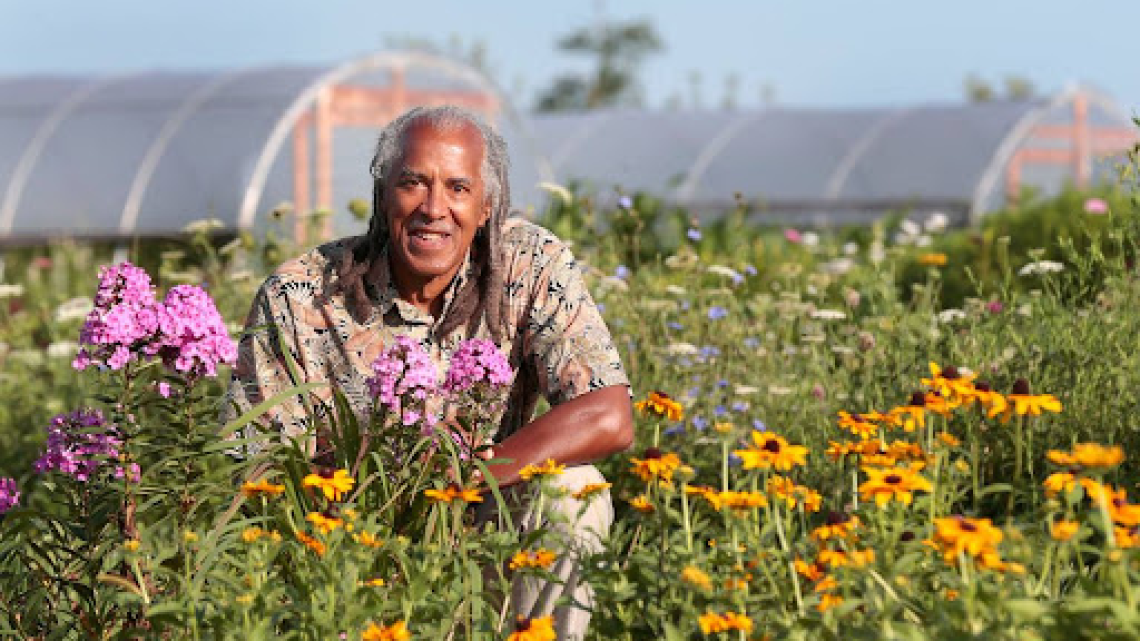
Jim Embry will speak at April 16 at Cornell as part of the Center for Research on Programmable Plant Systems (CROPPS) seminar series.
News directly from Cornell's colleges and centers
Activist explores George Washington Carver's work
By Matt Hayes
Inventor and scientist George Washington Carver made groundbreaking contributions to agriculture, providing profound insights and valuable approaches for modern sustainability efforts. Recognizing his legacy, the upcoming April 16 seminar titled "George Washington Carver and the Language of Plants: A Vital Pathway to Sustainability" will be led by eco-activist Jim Embry as the keynote speaker.
Embry's presentation, part of the Center for Research on Programmable Plant Systems (CROPPS) seminar series, will delve into the practical implications of Carver's work, exploring how his insights can inform and inspire contemporary sustainability initiatives. It will emphasize the intersection of agriculture, sustainability, and social justice. The hybrid seminar is scheduled to take place on April 16 from 2-3 p.m. at the Boyce Thompson Institute auditorium on the Cornell University campus, with the option to register virtually via Zoom.
Embry, founder of the Sustainable Communities Network who regards himself as an agrarian intellectual activist, brings over 65 years of experience as an eco- and social justice activist to our current overlapping and global challenges with a special affection for higher education. Embry, whose collaborative efforts at the local, national and international levels focus on food systems, will offer a critique of conventional notions of sustainability by drawing inspiration from the teachings of George Washington Carver.
Embry's presentation will offer six innovative pathways for building a sustainable future, all rooted in Carver's magnanimous work and vision. Beyond the traditional triad of economics, equity, and environment, Embry will present a transformative perspective on sustainability and emphasize Carver's understanding of the intricate language of plants.
"George Washington Carver's legacy extends far beyond his contributions to agricultural science," Embry said. "His insights into the interdependence of all of the elements of Earth, including plants, offer invaluable lessons for shaping a more just and sustainable world."
Embry, recently honored with the James Beard Foundation Leadership Award for his lifelong dedication to advocating for sustainable living practices and BIPOC justice, is also working with Ohio State University on the George Washington Carver Science Park, as well as Stanford University on their Sustainability Pathways, Black Framer Tool Kit, and Climate Action Planning. He now guides the Systems Transformation Partnership that is especially focused on engaging higher education.
Embry‘s family has deep connections with George Washington Carver that go back to his great grandfathers’ friendship with Carver during the early 1900s. Embry, now regarded as one the prominent researchers of and advocates for Carvers’ legacy, is using his collaboration with and speaking engagements at Tuskegee University, Ohio State University, Yale University, Stanford University and now Cornell University, to encourage U.S. institutions of higher education to find relevance in and see Carver’s legacy as an essential pathway to a sustainable future.
Join CROPPS for this enlightening seminar as we explore the connections between plant science, sustainability, and social justice. Don't miss this unique opportunity to gain new insights and perspectives on building a better future.
The seminar is co-sponsored by the College of Agriculture and Life Sciences (CALS) Dean’s Inclusive Excellence Seminar Series.
Media Contact
Get Cornell news delivered right to your inbox.
Subscribe
